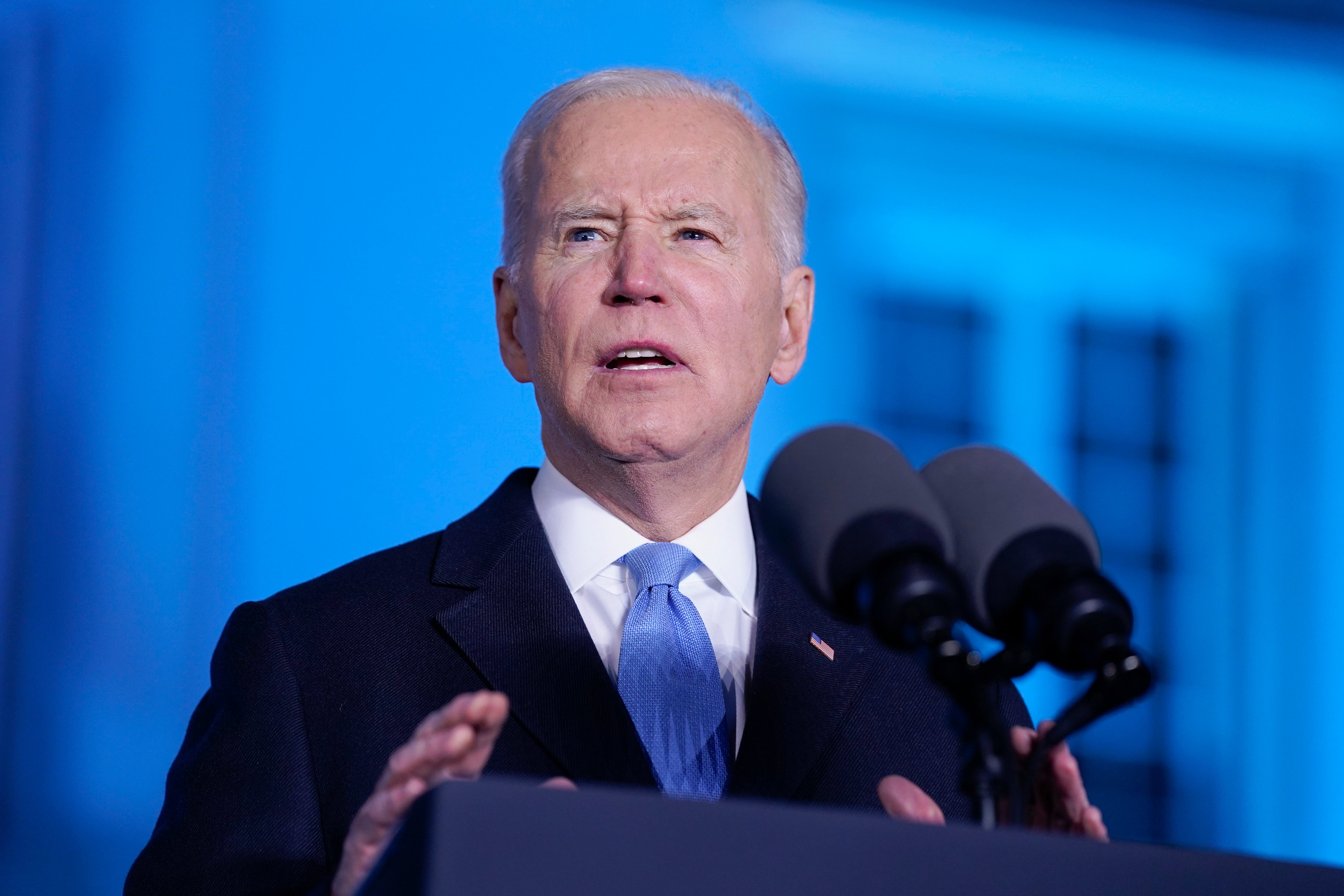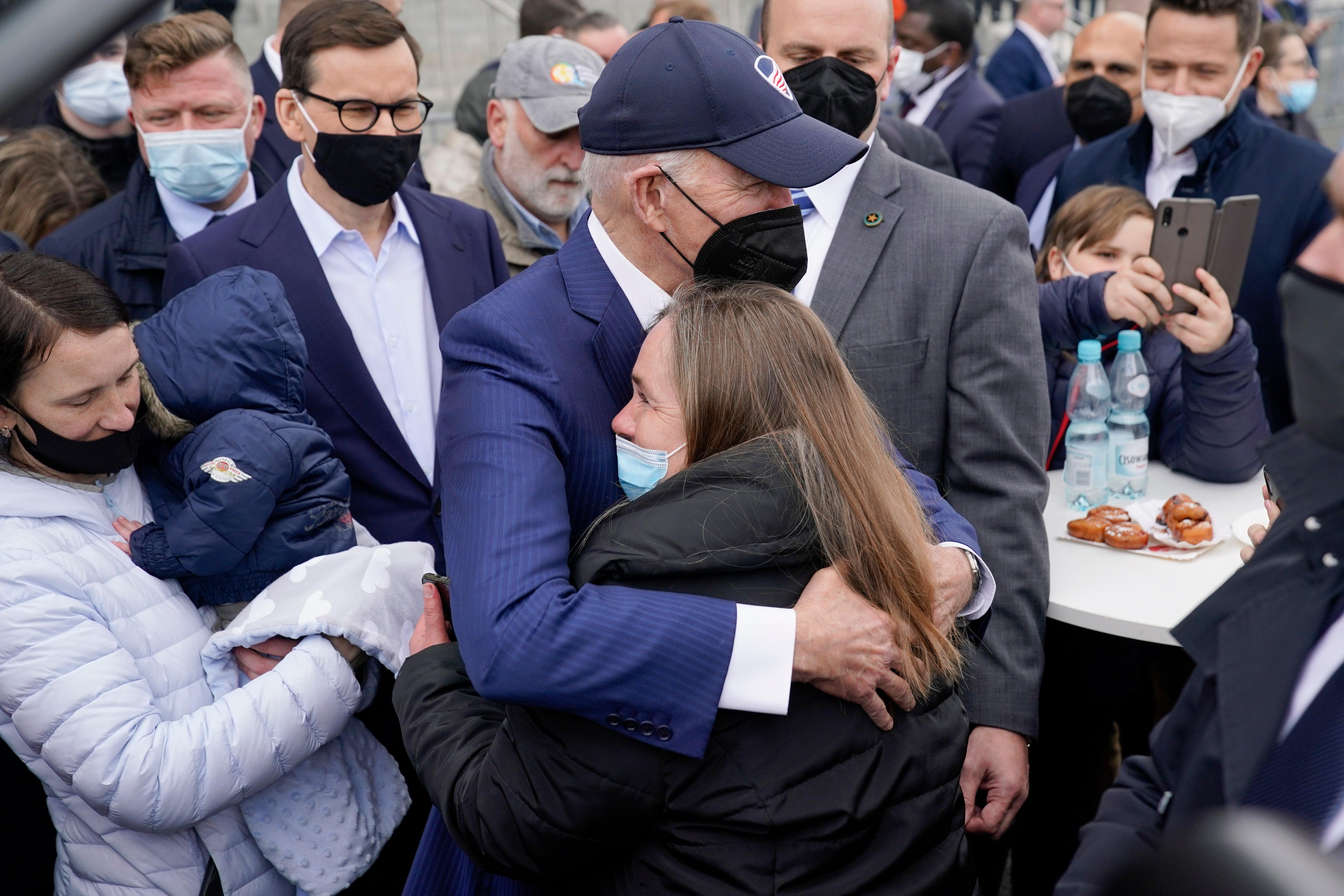Joe Biden can’t seem to stop himself speaking from the heart over Ukraine
The US president is used to seeing the word ‘gaffe’ in headlines next to his name – but the White House knows his words are more important now than ever, writes Chris Stevenson


It had been a little while since the word “gaffe” and Joe Biden appeared so prominently together in the headlines – but during his trip to Europe in recent days we had three examples in swift succession.
As he was hailing the heroism of the Ukrainians, Biden told US troops: “you’re going to see when you’re there” – with officials later having to qualify that nothing had changed about the White House stance on direct involvement of American soldiers: “The president has been clear we are not sending US troops to Ukraine.” Then Biden said he would respond “in kind” to any use of chemical weapons by Russia in Ukraine, which led to the bizarre situation of national security adviser Jake Sullivan having to tell reporters that the US has “no intention of using chemical weapons period, under any circumstance”.
Then came Saturday's remark, when Biden said of the Russian president, Vladimir Putin: “For God’s sake, this man cannot remain in power”. The ad-libbed remark caused a few officials to grimace, I'm sure, given that whatever the president says will carry extra weight in the middle of an international crisis. So the White House issued another clarifying – ish – statement, aides probably dizzy from having to furiously "step back" so often: “The president’s point was that Putin cannot be allowed to exercise power over his neighbours or the region. He was not discussing Putin’s power in Russia, or regime change.”
US officials had been briefing that the aim was to stay away from the kind of Cold War mentality that gives Putin exactly the type of “imperial” enemy that he seeks – and allows him the space to start using the same language. Although the first response from the Kremlin was relatively temperate: “That’s not for Biden to decide,” Putin spokesperson Dmitry Peskov told Reuters. “The president of Russia is elected by Russians.”
Biden’s verbal discipline has never been absolute – to put it mildly – with James Clapper, former director of national intelligence of the United States from 2010 to 2017, telling CNN that such remarks should not be totally unexpected, given what Biden was witnessing. “I think I know him well enough from my exposé with him when he was vice president... he had visited with some Ukrainian refugees and I think that probably affected him emotionally – and I think that statement came out because he believes it,” he said.

During the last week Biden has also called Putin “a butcher” and a “war criminal”. In regards to that second one, White House press secretary Jen Psaki said Biden was “speaking from his heart” rather than anything else – a statement that Clapper’s assessment of the “cannot remain in power” remark seems to back up. During the Cuban missile crisis of 1962, John F Kennedy sought to avoid provoking Soviet leader Nikita Khrushchev during the face-off, JFK biographer Fredrik Logevall later said, by trying not to “personalise” the situation. Biden appears not to be able to do that, despite having stayed mostly on message when it comes to the unity of the west against Russian aggression.
Both Biden and the White House will be holding out some hope that Putin will agree to talks and that diplomacy may yet win out, and so there is a point to the hastily published clarifications of the president’s words. But Clapper believes there may be one other audience Biden aimed Saturday’s remark at, the Russian people. After all, even the Kremlin has said that Putin’s fate is theirs to decide.



Join our commenting forum
Join thought-provoking conversations, follow other Independent readers and see their replies
Comments